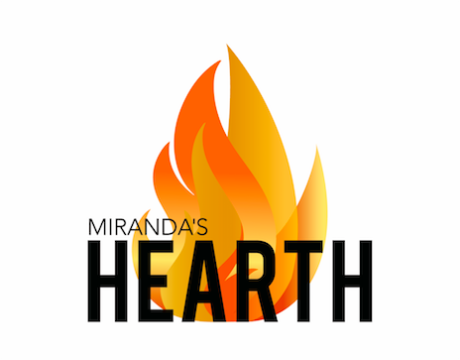The Privilege of Choice
I was eight years old the day the towers fell.
The one memory I hold from that day is when my mum told us what had happened. She picked me up from my classroom, where the teachers had kept the news to themselves, and we had just gone to get my older sister. It was a beautiful fall day in New England and I was skipping across the parking lot, happy to be inexplicably out of the classroom so early in the school year.
I remember her solemnity more than anything else. I can’t remember how she broke it to me or whether she cried and I’m sure I couldn’t grasp what she was saying, but her solemness stuck with me. My mother is a very warm, cheerful, energetic person, and she was still as she told us. So perfectly still.
I don’t know how I avoided it, but I’ve realized in the years since that I never saw the news footage from the tragedy, at least not directly. Despite living in Stamford, CT, a mere fifty miles from the city, the event was distant and removed. My parents, my friends, my teachers, they all knew people in New York that day, but no one I was close to had lost anyone. My relative physical proximity was dulled by my youthful naiveté and the luck, if you can call it that, of emotional distance.
I’ve wondered since then whether to find it and watch it. Not out of a macabre curiosity, but in order to more fully understand what happened. It’s a question I ask myself everyday, when the next tragedy hits the airwaves. How much do I look? How many terrible photos do I examine? How many heartbreaking stories do I read? In an age of unprecedented global communication, we could each spend the entire day reading today’s tragedies and not have caught up before we go to bed.
How much do I take in? How much can any one person take in? And once it is taken in, what do I do with it? How can I turn the weight and knowledge of today’s tragedy into a positive step tomorrow? The ability to choose which tragedies I experience is, in and of itself, possibly my greatest privilege. As a young, white woman, it is so scarily easy to continue to walk around with the same slightly confused feeling I had as a child on that fateful day: knowing there was something wrong, but not really understanding what.
I’ve yet to view the footage, and I don’t believe I ever will; I’ve found that gawking at atrocities does not deepen my empathy. Instead, I talk to people and read articles and listen to stories and write to sort out my own thoughts because that is, at least, a place to start and a place from which a change can come. When tragedies strike, I stay away from the stampedes of brutal images that are used to shock us because so often I find that shock dulls my empathy instead of deepening it. Instead, I look for the stories, for the people, for the humanity in all of its brutality and all of its kindness. I find that the more I listen and reflect, the more I connect and empathize. I find myself emulating my mother’s stillness.
This Sunday is the fifteenth anniversary of the trade centers falling and we’re attempting to create a space in our community for the listening, learning, and empathy that can help us navigate and possibly even avoid tragedies. Meenakshi Verma-Agrawal will be leading us in a workshop on race equity where she’ll present history, context and tools on understanding America’s racist history alongside an introduction of why it’s important for white folks to speak about racism.
I’m choosing to wield the privilege of choice by turning towards the difficult conversations instead of away from them. I hope you will join me so that together we can learn something about ourselves, our community, our history and work to create more engaged, aware, and safe spaces.
Event Details
4:00-6:00 pm: Race Equity Workshop with Meenakshi Verma-Agrawal
6:00-7:00 pm: Reflective art project
7:00-8:00 pm: Community Potluck
Meenakshi Verma-Agrawal served among the organizers of the first Summit on Race and Equity: A Call to Government and Community held by the Boston Alliance for Race and Equity on May 16-17, 2016. The event, which the organizers described as “a launching pad for an inclusive, cross sector regional network that spans across greater Boston and New England to advance racial equity and ensure opportunities for all members of the Commonwealth,” drew an estimated 500 people representing nearly 150 different organizations, including city agencies, nonprofits, and for-profit organizations, to the campus of Northeastern University.
Tickets to this event are $30. $25 for students, or $20 with a potluck dish. We highly encourage people to purchase tickets ahead of time: https://www.eventbrite.com/e/hearth-dinner-on-race-equity-a-historical-and-personal-journey-tickets-27149979319
